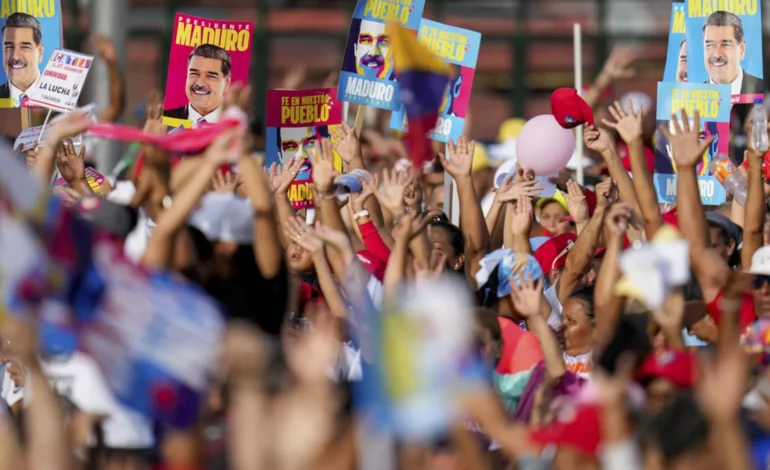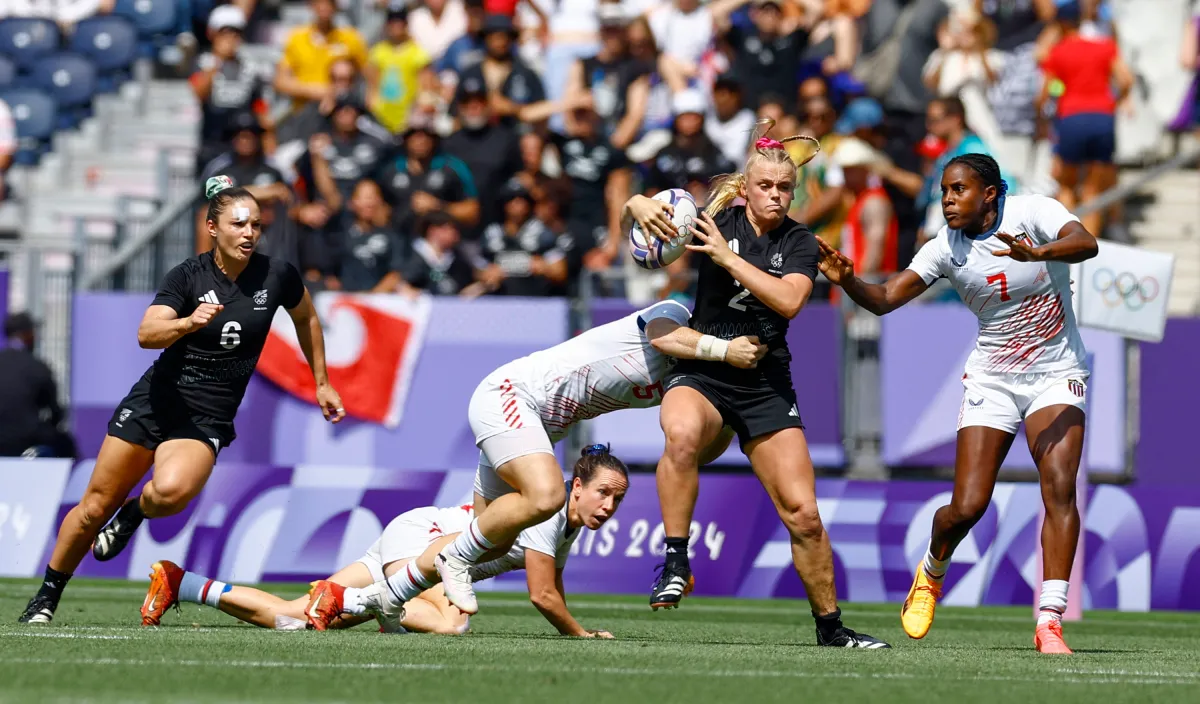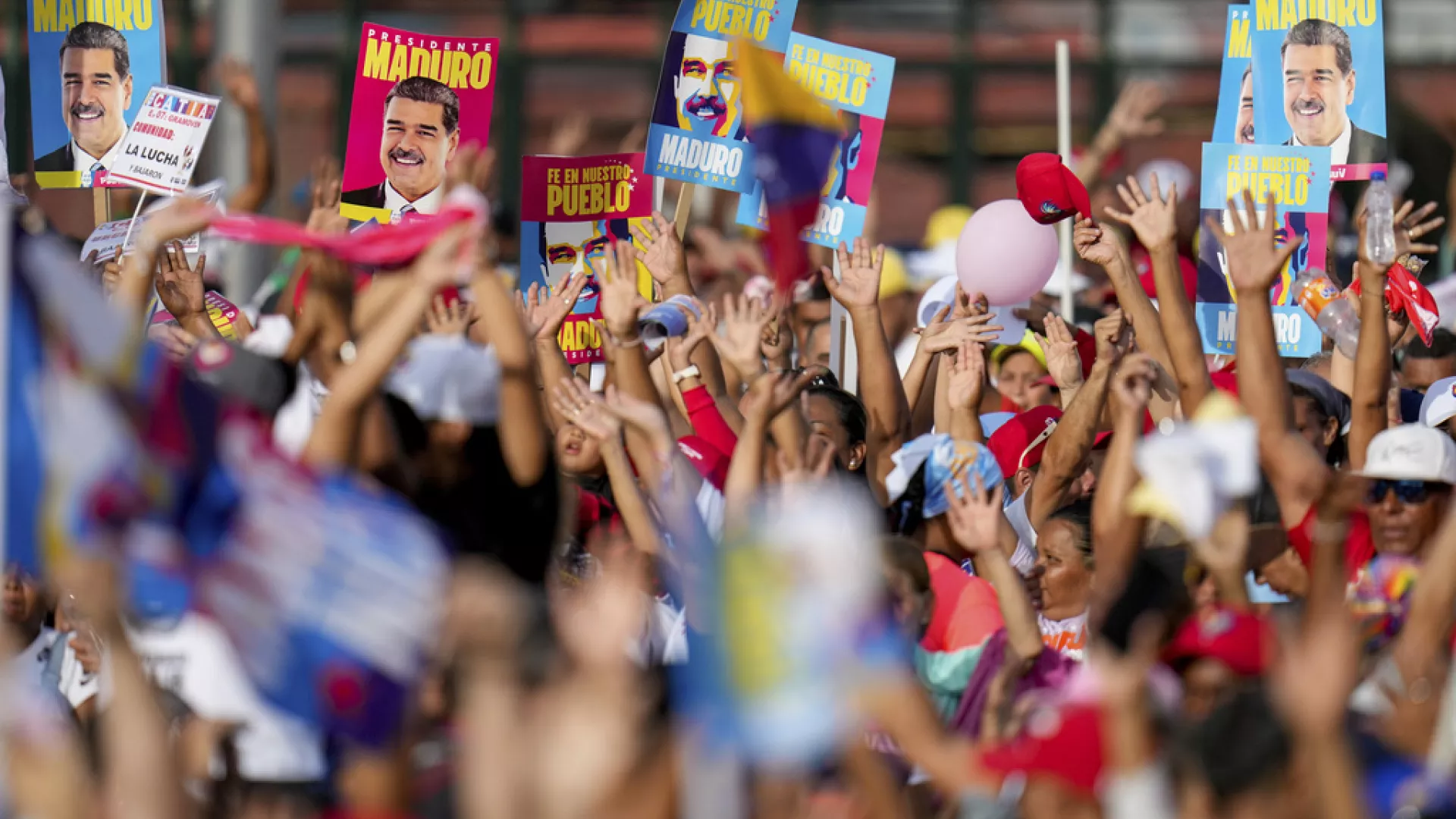Venezuela Votes in a Crucial Presidential Election as Opposition Aims for Change
- By React Dojo
- July 28, 2024

Venezuela Votes in a Crucial Presidential Election as Opposition Aims for Change
Venezuela stands at a crossroads. After years of political turmoil, economic hardship, and international scrutiny, the nation is gearing up to make a monumental choice in its presidential election. On one hand, voters may elect to extend the grip of Nicolas Maduro, the country’s incumbent president, who has ruled for over a decade. On the other, they could pave the way for a new political landscape — one that many hope can address the severe challenges facing the nation.Background: A Brief Overview of Venezuela’s Political Climate
Venezuela, a country rich in natural resources and famed for its vibrant culture, has been in a state of crisis for years. The economy has been deteriorating due to factors such as falling oil prices, mismanagement, rampant inflation, and U.S.-led sanctions. With hyperinflation peaking over 3,000% in some estimates and widespread food shortages, the citizens’ dissatisfaction has reached a boiling point. Nicolas Maduro has been a controversial figure, ascending to the presidency after the death of Hugo Chávez in 2013. His administration has been characterized by accusations of authoritarianism, human rights violations, and corruption. Already facing strong opposition attempts to unseat him, this election is considered one of the most critical in the nation’s contemporary history.The Stakes: Why This Election Matters
Economic Hardships
Venezuelans are voting against a backdrop of economic despair. Many citizens are struggling to afford basic necessities such as food, medicine, and shelter, leading to mass emigration and a refugee crisis in nearby countries. According to recent reports, over six million Venezuelans have fled their country in search of better opportunities.Political Polarization
The political landscape in Venezuela is notably polarized. While Maduro enjoys loyalty from a segment of the population, particularly those who benefited from Chávez-era welfare programs, large factions are vocally opposed, rallying around calls for change. Reports show that over two-thirds of the electorate is disillusioned with the current administration, indicating a hunger for alternatives.International Scrutiny
As Venezuela heads to the polls, global attention is laser-focused on the proceedings. The credibility of this election will be under the microscope, with many international observers raising concerns about fairness and transparency. Countries like the United States and members of the European Union have long scrutinized Maduro’s leadership, emphasizing the need for an election that reflects the will of the people.What’s at Stake for Both Sides
The Opposition’s Challenge
The opposition coalition, for the first time in years, appears to have achieved a degree of unity. Several prominent figures, historically fragmented, are rallying together to challenge Maduro, capitalizing on the widespread discontent with his administration. This is significant; a united front could mobilize a larger voter base and bring new dynamics into the political arena. As the election nears, key opposition figures have emphasized the need for integrity in the voting process. They argue that credible electoral reforms are necessary for the election to be accepted both locally and internationally. Past elections have been marred by accusations of fraud and electoral manipulation, which the opposition aims to counter by demanding fair conditions.The Maduro Administration’s Strategy
On the opposite end, Maduro is expected to leverage the control his administration holds over the state apparatus to maintain power. The government has been accused of manipulating state resources, using propaganda, and suppressing dissent to ensure that the elections tilt in their favor. Additionally, they are portraying an image of stability when many observers see only decay, urging Venezuelans to trust their leadership for a better future.Future Implications
The outcome of this election has profound implications not only for Venezuelans but for regional stability in Latin America. A change in leadership could raise hopes for economic recovery and better governance. Conversely, a victory for Maduro could lead to continued isolation and deterioration of living conditions in the country.Conclusion
As Venezuelans cast their votes, the world watches closely, hoping for a resolution to years of hardship and an opportunity for a brighter future. The risks and hopes tied to this election underscore the importance of a free and fair voting process, which remains essential for rebuilding a fractured nation.FAQs
What are the key issues facing Venezuelan voters in this election?
Venezuelan voters are primarily concerned with the ongoing economic crisis, high inflation rates, shortages of essential goods, and government corruption.Who are the main opposition candidates challenging Maduro?
The main opposition candidates include prominent figures like Henrique Capriles and María Corina Machado, both of whom have strong followings and represent a united front against Maduro.What is the international community’s stance on this election?
The international community, particularly Western nations, has expressed skepticism about the fairness of past elections in Venezuela. Many are keenly observing the current election process to ensure it reflects the will of the people.How does the election impact the regional balance of power?
The elections in Venezuela are pivotal for the power dynamics in Latin America. A shift in leadership could inspire similar movements in neighboring countries dealing with their own crises.What can be done to ensure a fair election process in Venezuela?
Monitoring by neutral international observers, transparency in the voting process, and protecting voters’ rights are crucial for ensuring free and fair elections.FAQ
Venezuelan voters are primarily concerned with the ongoing economic crisis, high inflation rates, shortages of essential goods, and government corruption.
The main opposition candidates include prominent figures like Henrique Capriles and María Corina Machado.
The international community has expressed skepticism about the fairness of past elections and is closely observing the current election process.
The elections are pivotal for power dynamics in Latin America, with a potential change in leadership inspiring movements in neighboring nations.
Monitoring by neutral international observers, transparency, and protection of voters’ rights are crucial for free elections.




